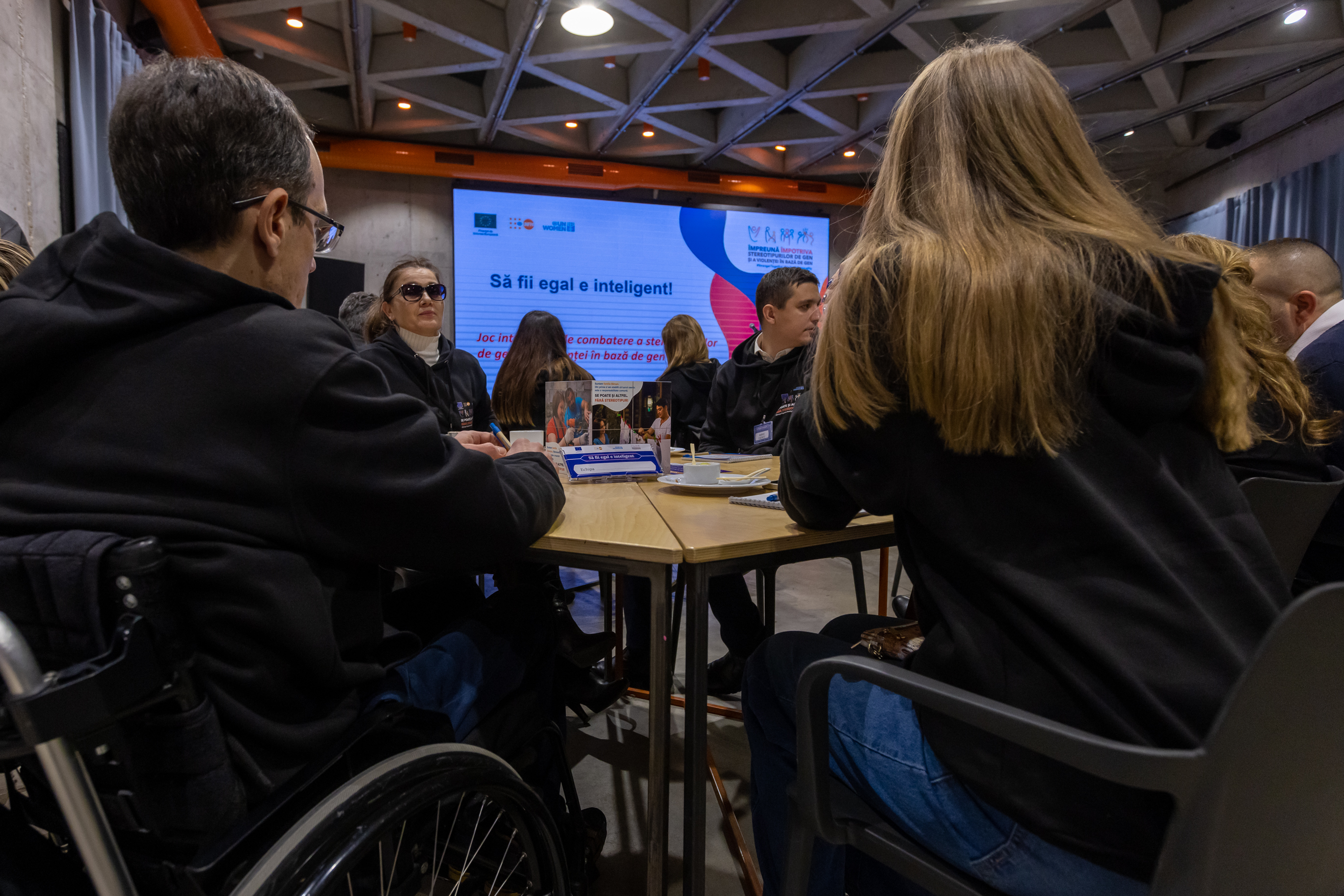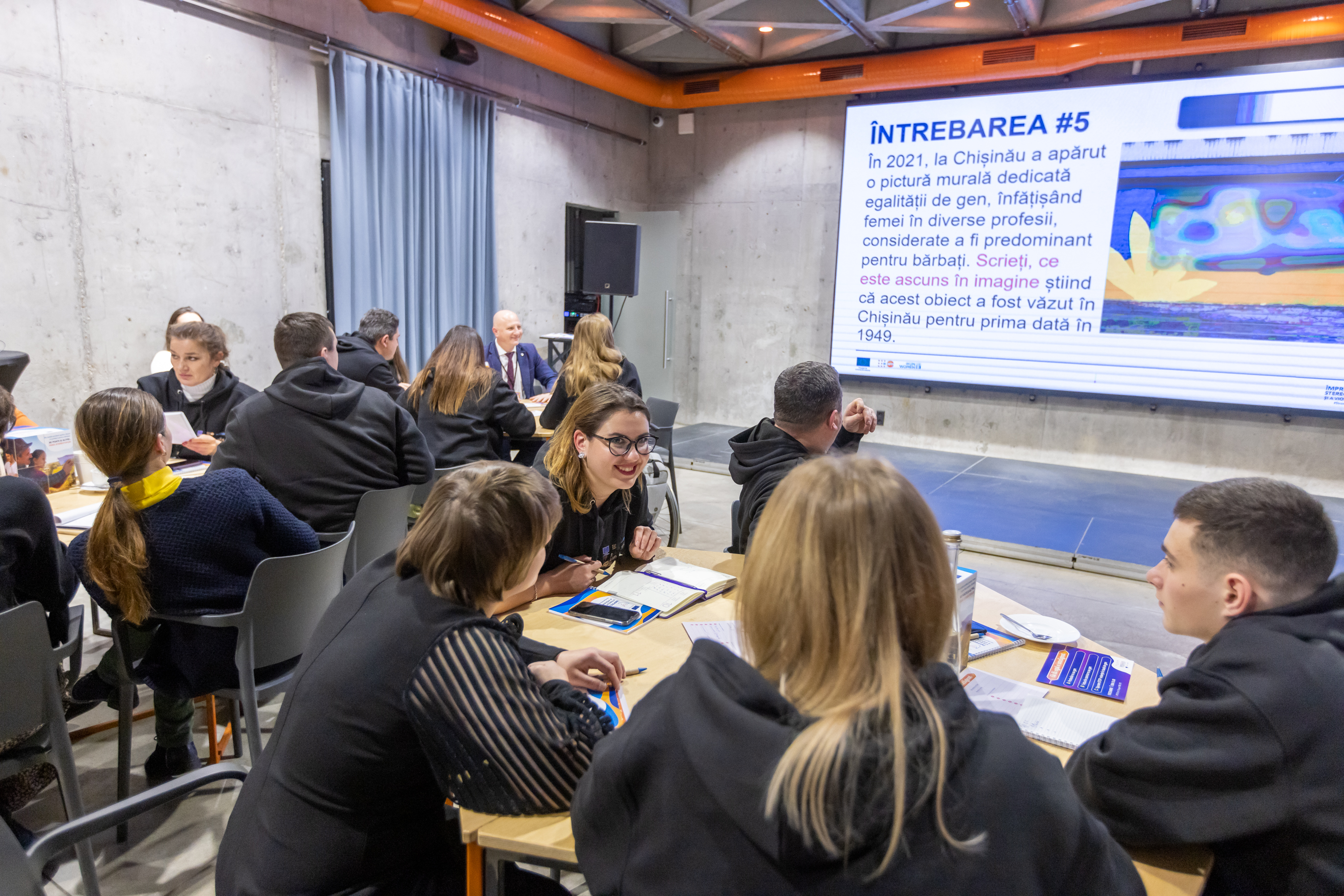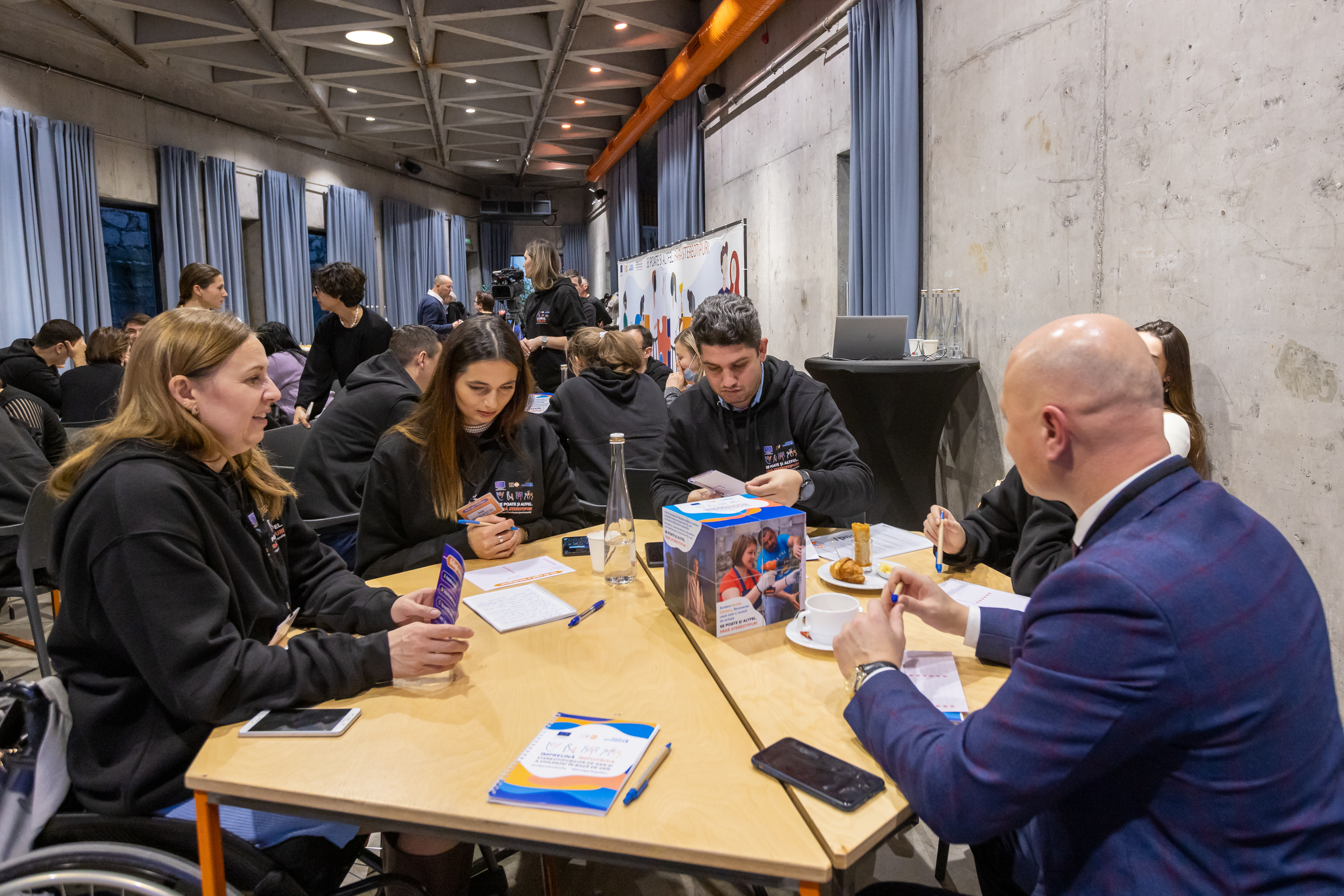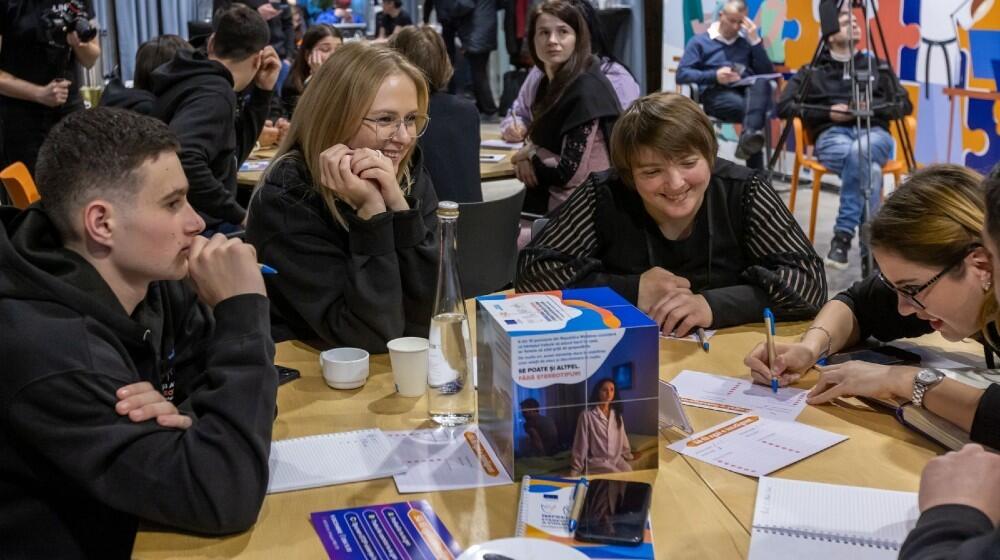The topic of preventing and eliminating violence against women and girls brought together representatives of the Government, Parliament, the United Nations, the European Union Delegation to the Republic of Moldova, as well as men and women from Strășeni and Fălești in an intellectual game to combat gender stereotypes and gender-based violence.
The event was organised by UN Women and UNFPA with the support of the European Union as part of the ”16 Days of Activism Against Gender-based Violence against Women and Girls” campaign running from 25 November to 10 December. The game "It is smart to be equal" brought together 30 women and men, members of the Fălești and Strășeni Fathers' Clubs, girls and boys, people with disabilities and influencers involved in the activities of the regional programme "Together Against Gender Stereotypes and Gender-Based Violence”.

The participants formed five teams and for one minute were taking turns in answering each of the 36 questions related to gender equality, stereotypes about the roles of men and women at home and in society, women's empowerment and positive masculinity, trying to score as many points as possible.
‘Team spirit is what should be the defining factor for us as men and women at home and in society. In a couple, both partners should be able to realise their potential. That's why housework and childcare should be a shared responsibility. I am the father of 4 boys, I spend time with them and I am involved in their education. I do house cleaning and don't consider washing dishes women's work. I cook and that doesn't make me any less of a man. The more gender equality in the family, the less violence,’ said Vladimir Cibotaru, member of Strășeni Fathers' Club.
‘Together it's twice as easy. Both in the game and in real life, at home or in society. It is wrong to say that men and women have different potential. If the opportunities were equal, then the possibilities for self-realization would be the same for men and women. Stereotypes perpetuate gender inequality and can lead to violence and discrimination against women,’ said Otilia Mogîldea, a young woman from Strășeni.

Violence against women and girls is one of the most systematic and widespread human rights violations in Moldova and around the world. The most common victims of domestic violence are women. The results of a national survey [1]on violence against women show that every second woman in the Republic of Moldova has suffered multiple physical violence from her husband or partner. Nine in 10 were slapped, 6 in 10 were pushed or shoved, every second woman was punched, every fourth was beaten up or kicked, and two in five women were verbally assaulted or humiliated.
Having stereotypical beliefs about the role of women and men at home and in society, women often accept the violent behaviour of their husbands or partners, stating that a woman should obey her husband's opinions (32%); a husband needs to feel like he is the head of the family (70%); a woman should not contradict her husband (54%).

‘Equality between women and men is a fundamental value of the European Union. The EU supports the interventions where girls' and women's rights are claimed, so that everyone is able to reach their potential to contribute to a more equitable society. Evidence shows that when women are given equal opportunities, access to resources and decision-making, communities are more prosperous and peaceful,’ said H.E. Jānis Mažeiks, Ambassador of the European Union to the Republic of Moldova.
’Men and boys play a crucial role in promoting gender equality and preventing gender-based violence. The experience of UNFPA shows that men’s gendered beliefs, perceptions and practices can have a positive impact on the lives of women and girls. Today’s event is a great opportunity to recognize how important is to strength the equal rights and opportunities for women and men. Men and boys can be important allies and agents of change and they should not be motivated by fear, shame or guilt but rather by meaningful and long-term positive change” said Nigina Abaszada, UNFPA Moldova Resident Representative.
"Violence against women and girls is rooted in gender-based discrimination, social norms that often normalize violence, and gender stereotypes that enable perpetuation of violence. Prevention is pivotal to eliminating the phenomenon completely. Today’s event provided us the opportunity to look back at the most important achievements in the field of women’s rights, but also to acknowledge the harmful attitudes, perceptions and stereotypes which need to be changed in order to eliminate the prevalence of gender-based violence " said Dominika Stojanoska, UN Women Moldova Country Representative.
______________________________________________________________________________
The ‘Together Against Gender Stereotypes and Gender-Based Violence’ Program supports gender equality, tackles perceptions about the roles of men and women in the family and in the society, and is meant to contribute to eliminating gender-based violence.
Supported by the EU, the two UN agencies are working with governmental institutions and civil society partners from six countries with a focus on breaking gender stereotypes, enhancing the engagement of men in household chores and child rearing, and carry out activities to prevent the perpetuation of gender-based violence, involving potential perpetrators.
Contact data for media:
Ludmila Bogheanu, Communication Officer, ‘Together Against Gender Stereotypes and Gender-Based Violence’ Regional Program, tel. +37369403016, email: bogheanu@unfpa.org


